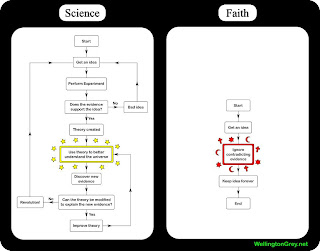With the looming threat of sequestration* just two weeks away, agencies of your federal government are taking draconian measures to reduce their spending in expectation of massive, across-the-board budget reductions.
At the Department of Defense (
DoD to insiders), one area which is being sharply reduced is travel funding. Military personnel are frequently sent from their normal duty stations on short (179 days or less) trips known as
temporary duty (or
TDY)**, and there are special budgets set aside to pay for such trips. The rules for what can and can't be paid and how travel reimbursements are calculated are contained in an enormous volume known as the
Joint Travel Regulations, or
JTR, which is utterly unintelligible except to lawyers and accountants.
In order to reduce the cost of TDY (or TAD) travel, the JTR documents are being updated with special rules driven by the inability or unwillingness of Congress to do its job. Here are a few of the changes which will be going into effect immediately:
Part 1 - Lodging:
a) All DOD personnel performing temporary duty (TDY) are encouraged to stay with relatives and friends while on government business travel.
b) If weather permits, public areas such as parks should be used as temporary lodging sites. Travelers may bring their own tents, if desired.
c) Bus terminals, train stations, and office lobbies may provide shelter in periods of inclement weather.
d) For a small (non-reimbursable) fee, the
National Geospatial Intelligence Agency will provide traveling personnel with maps showing the locations of:
(1) Steam grates which will allow comfortable sleeping in colder climates.
(2) Empty, abandoned, or under-construction buildings which can provide shelter.
(3) Caves.
e) Sleeping in government facilities during or off-duty is henceforth prohibited for TDY/TAD personnel.
Part 2 - Transportation:
a) Hitchhiking is the preferred mode of travel in lieu of commercial transport. Luminescent safety vests and flashlights with translucent red cones will be issued to all personnel prior to their departure on TDY but must be returned upon completion of travel. Traveler is responsible for any damage or stains and will reimburse the government for cleaning and/or repair. Replacement of flashlight batteries will be at the traveller's expense.
b) Bicycle, cross-country skis and horse rentals do not qualify for mileage or reimbursement.
c) Bus transportation will be used only when work schedules require such travel. Personnel are expected to travel on foot; this not only saves transportation funds, but also contributes to personal fitness, reducing long-term medical costs.
d) Airline tickets will be authorized only in extreme circumstances and the lowest fares will be used. For example, if a meeting is scheduled in Washington D.C., but a lower fare can be obtained by traveling to Omaha, NE, then travel to Omaha will be substituted for travel to Washington D.C. In group travel, smaller personnel will consider travel as checked baggage using pet travel rates whenever possible; documentation of cost/benefit assessment of such travel must be submitted with other travel paperwork.
e) Regardless of mode of travel, reimbursement of checked baggage fees is not authorized; thus, "layering" is encouraged.
Part 3 - Meals:
a) Expenditures for meals will be limited to an absolute minimum, and will not exceed two meals per 24-hour period.
b) It should be noted that certain grocery and specialty chains, such as Costco, Sam's Club, Hickory Farms, General Nutrition centers, and occasionally Safeway often provide free samples of promotional items. Entire meals can be obtained in this manner, which is already being used by lower-ranking enlisted families with great success.
c) Travelers should also be familiar with indigenous roots, berries, and other protein sources available at their destinations.
d) If restaurants must be utilized, travelers will patronize "all you can eat" salad bars. This is especially effective for employees traveling together, as one plate can be used to feed the entire group.
e) DoD Personnel are also encouraged to bring their own food on business travel. Cans of tuna fish, Spam, and Beefaroni can be consumed at your leisure without the bother of heating or costly preparation. Ramen noodles are also a low-cost alternative; however, costs of heating will not be reimbursed. In all cases, cost of these items will not be reimbursed.
Part 4 - Miscellaneous: Personnel are required to use innovative techniques to defray travel expenses.
a) Red caps will be issued prior to departure to all personnel authorized to fly so that they may earn tips by helping others with their luggage.
b) When not on duty, members with musical or performing talents are encouraged will perform on streets, in hotel lobbies, and in transportation waiting areas for tips.
c) Small plastic roses, ballpoint pens, and other items will be issued to personnel so that sales may be made as time permits. These items will be signed for at issue and carefully inventoried upon the traveler's return. All proceeds will be turned into the servicing finance section at the conclusion of the TDY and will be used to offset the cost of the trip.
... and so it begins.
After all, budgets have got to be cut somewhere so that tax rates for businesses and the wealthy*** can be kept at low levels.
Do your part!
Have a good day. More thoughts on Thursday.
Bilbo
* You know, the budget forcing function that was supposed to be so terrifying it would force Congress to act. Didn't work all that well, did it?
** In the Army and Air Force, anyway. The Navy, which insists on being different, refers to it as "Temporarily Assigned Duty, or TAD."
*** Known in GOP terminology as "job creatorsTM."

















































